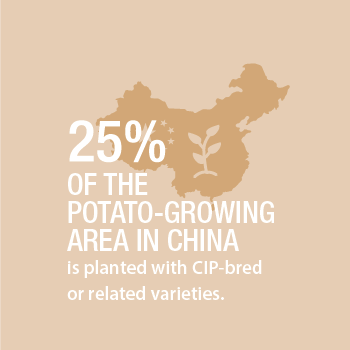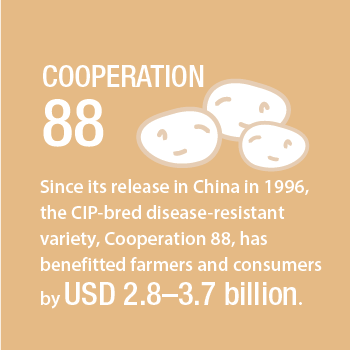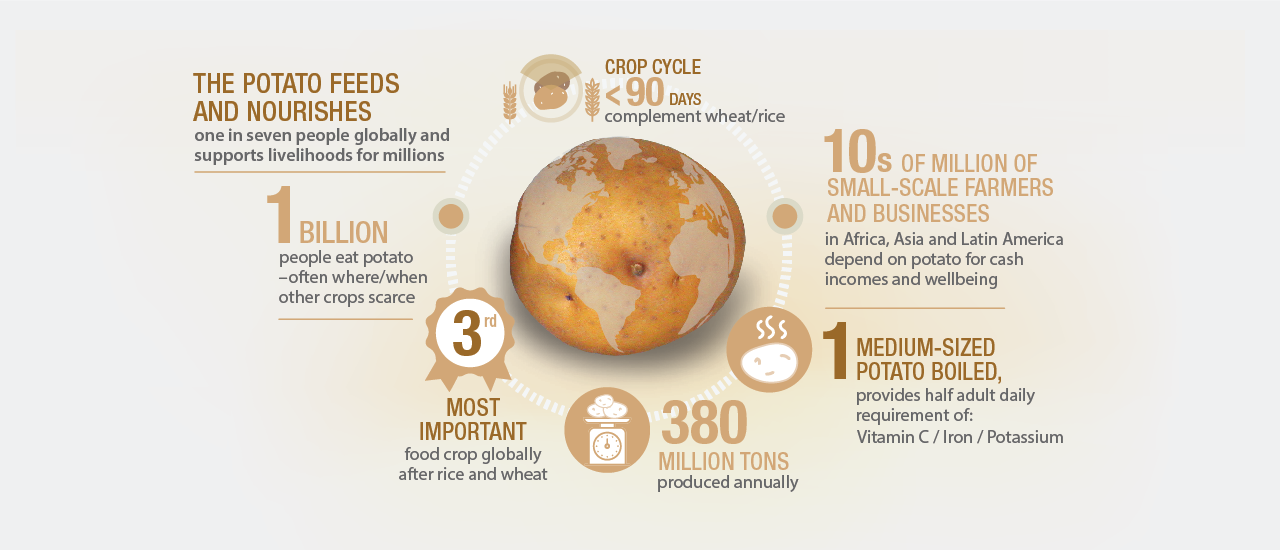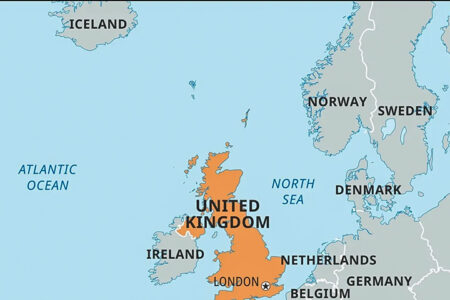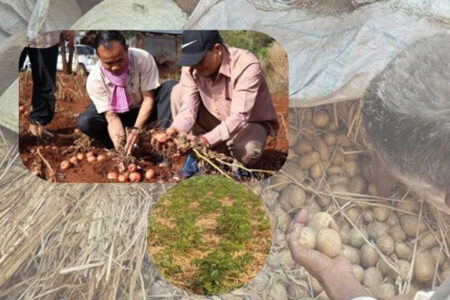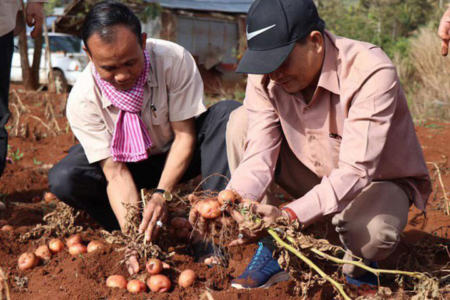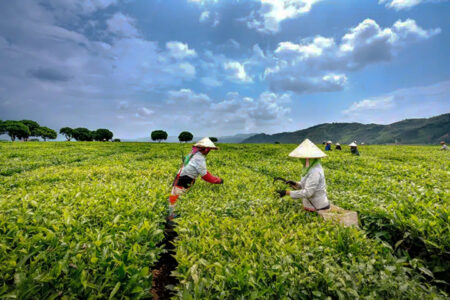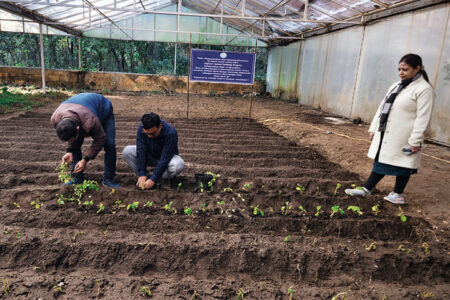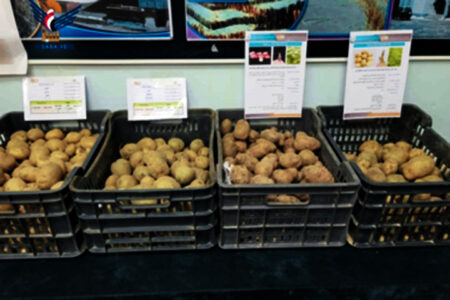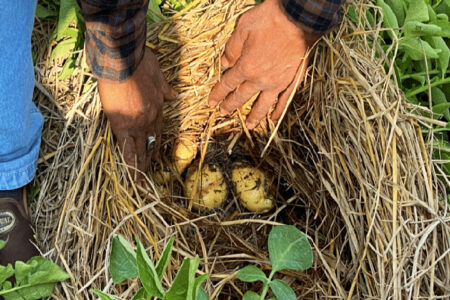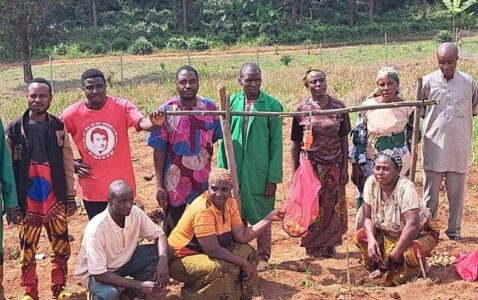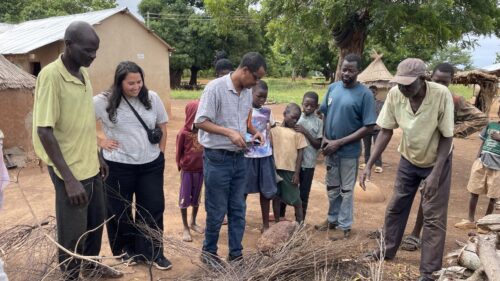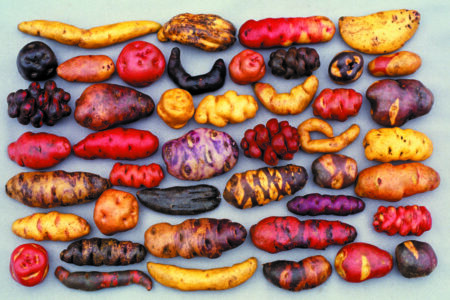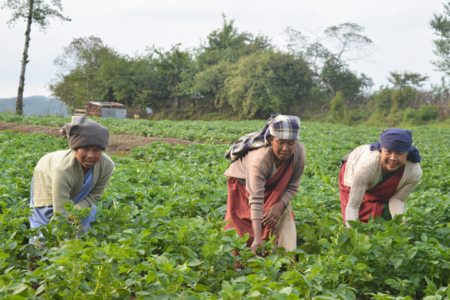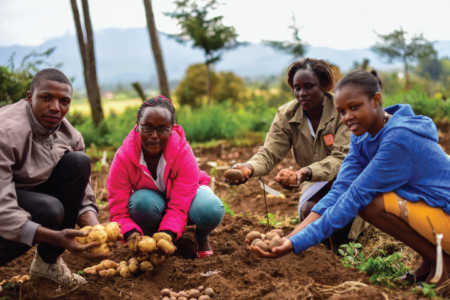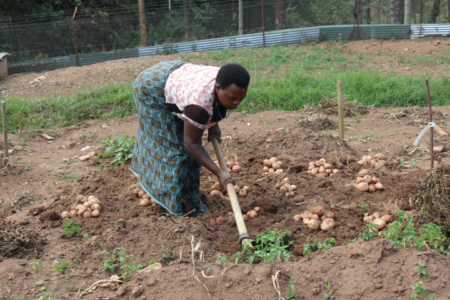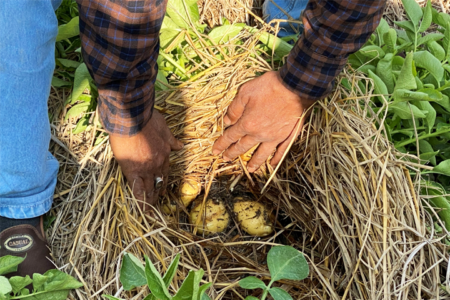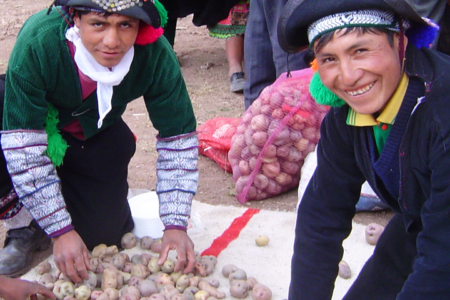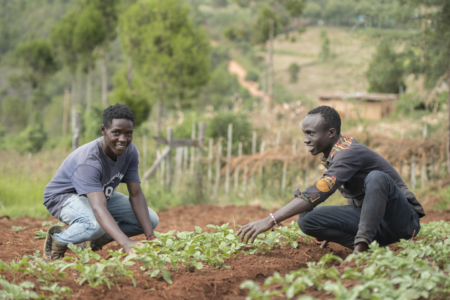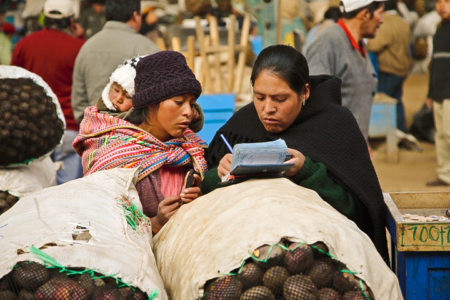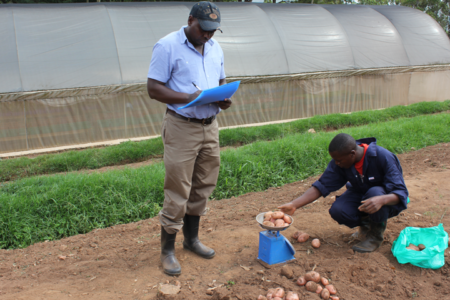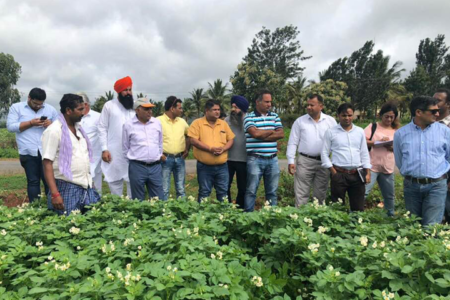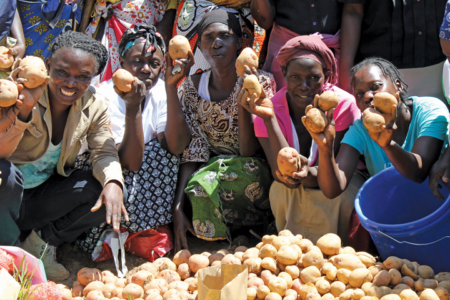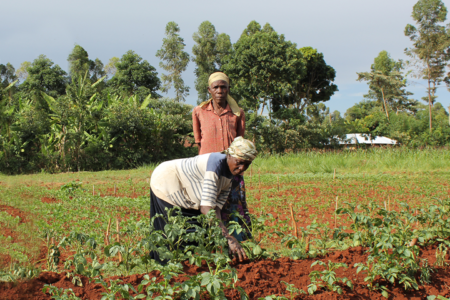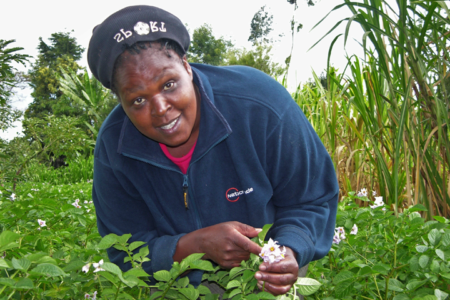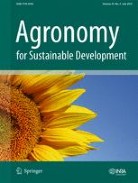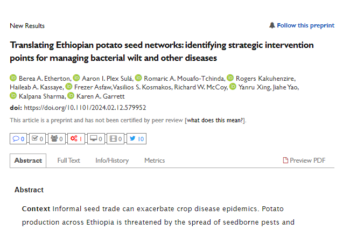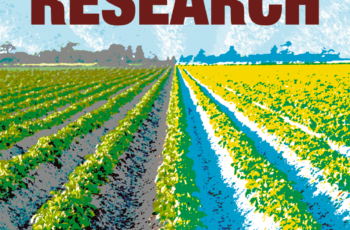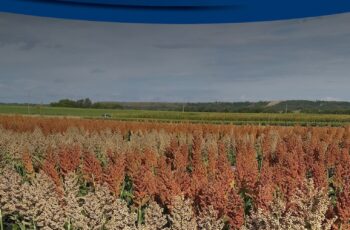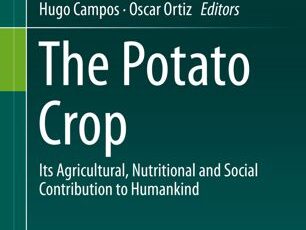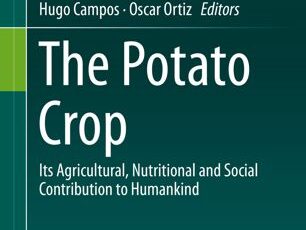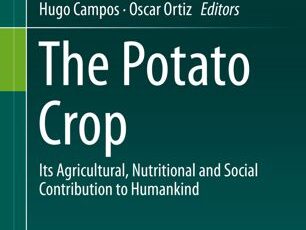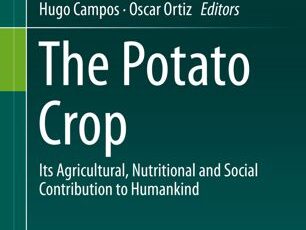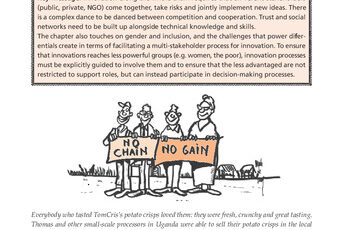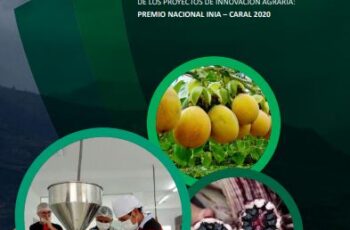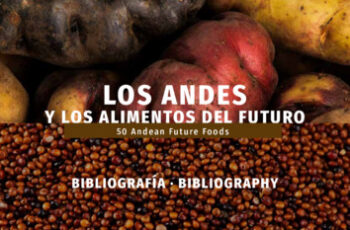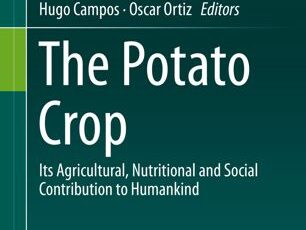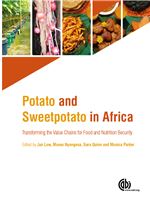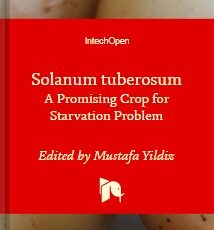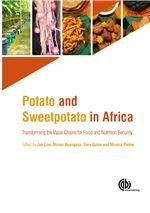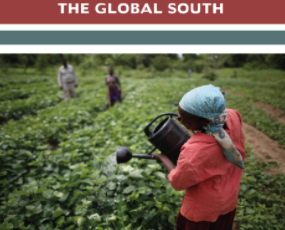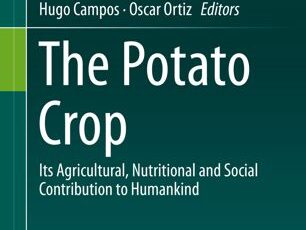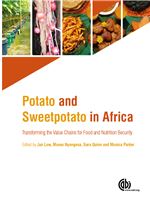The International Potato Center (CIP) responds to twenty-first century agricultural development challenges by organizing its work into three programs: Biodiversity for the future, and potato and sweetpotato agri-food systems.
Recent program achievements
Strategic Program objective
Early-maturing, market-preferred, and biofortified
potatoes and high-quality seed potato will improve
productivity and farm incomes of more than
7 million households in Africa, Asia
and Latin America by 2023.
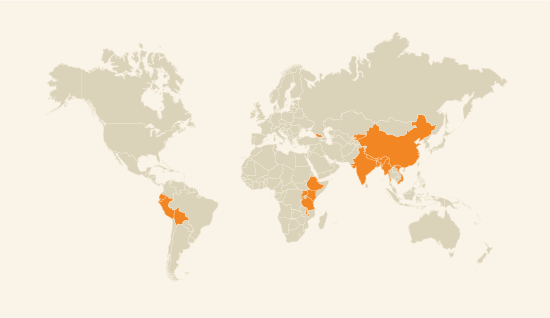
An increasingly challenging environment
Developing country small-scale farmers face many challenges as they struggle to produce enough nutritious food for their families and also a surplus to sell. Growing populations and urbanization are shrinking landholdings, so farmers need to produce more food from less land. In many developing countries, millions of farmers depend on a small number of crops to get by. Monocropping, poor agronomic practices, frequent droughts, flooding and salinity—increasingly linked to climate change—have degraded soil quality. Dependence on internationally traded grains leaves poor populations, particularly in Asia, at increased risk of malnutrition due to price spikes.
Breeding better potatoes
Recognizing the urgent need for more nutritious, more resilient food crops, CIP breeders are harnessing the latest scientific knowledge and tools to develop better varieties: early-maturing, stress-tolerant, disease-resistant potato varieties with characteristics desired by consumers and processors. Early maturing potatoes allow the crop to be grown during fallow periods of cereal-based systems. This relieves pressure on scarce land and water resources, helps to increase economic and nutritional value, and eases the strain of food price inflation. Stress-tolerant and disease-resistant potato varieties enable farmers to cope with problems that are expected to grow worse under climate change. They also reduce the need to use agrochemicals which saves money and reduces environmental impacts. CIP has also made significant advances in developing biofortified potatoes. These combine elevated levels of iron and zinc with resilience traits to contribute to global efforts to end malnutrition.
Better seed systems
To help increase crop yield and dissemination of improved varieties, CIP facilitates the improvement and expansion of potato seed systems. Most farmers in developing countries plant seed potatoes saved from their own harvests or purchased in informal markets. This aids the spread and accumulation of pathogens in plants and soil, which significantly reduce yields. CIP scientists have developed and promoted rapid propagation and multiplication techniques, and leveraged public and private sector investment to expand the supply of high-quality seed potatoes for farmers. Working closely with local R&D partners, CIP conducts adaptive research on best practices for on-farm seed quality management, integrated crop management, postharvest storage and seed value chain approaches, all of which increases yields and incomes.
1. Genetic diversity: conservation, management and DNA sequencing
2. Breeding: nutritional improvement, increasead yields; climate resilience; participatory varietal selection
3. Seed system development: seed production, multiplication, distribution and quality control
4. Sustainable intensification: nutrition education, agronomic training and post-harvest handling and storage
5. Value chains: business training, improved product processing, enhanced market linkages
6. Inclusion: technologies and methods targeted particularly at women and young people
7. MEL: assessing and validating scaling tools and impact assessment methods
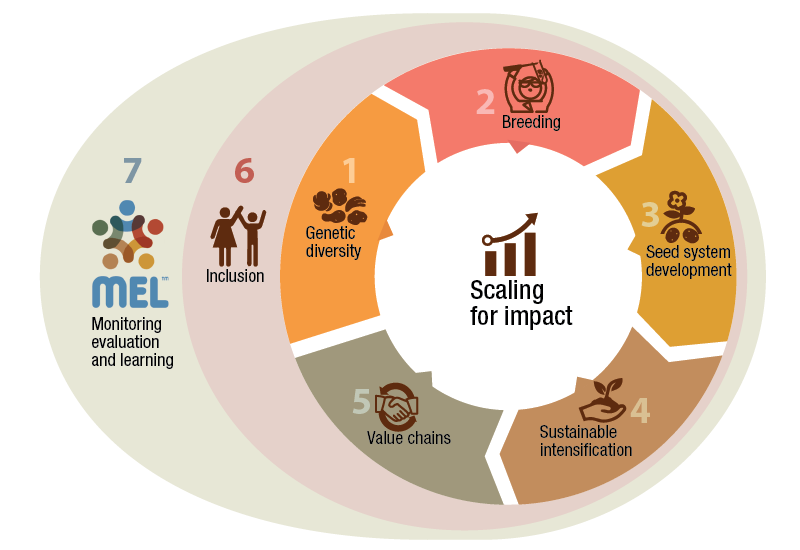
Research-for-development program products
The potato agri-food systems program is made up of a portfolio of research-for-development products.
This product plays a central role in CIP efforts to reduce malnutrition and increase the sustainable intensification, diversification and resilience of agri-food systems. Using locally-adapted iron- and zinc-rich potato varieties, scientists developed a breeding population of potatoes which were subsequently crossed with advanced clones to create improved varieties that are highly productive, biofortified, stress-tolerant, disease resistant, and early maturing. In addition to assessing the nutritional benefits of these potatoes, scientists—using participatory, gender-responsive breeding methods—are evaluating them for possible release as national varieties. They will use them to breed regionally adapted candidate varieties for targeted agro-ecosystems in Asia, Africa and Latin America. In partnership with advanced public and private organizations, CIP is also unlocking potato genomics to enhance and accelerate this process in response to agroecological conditions and consumer demand.
Late blight is a potentially devasting potato disease globally. CIP has made significant advances in the use of advanced biotechnology and molecular methods to transfer late blight-free resistance from crop wild relatives to cultivated potatoes. These varieties were then thoroughly evaluated at the ILRI-BecA (Biosciences eastern and central Africa) Hub in Kenya and the National Agricultural Research Organization in Uganda and were found to be highly resistant to late blight. CIP’s next targets are potato virus Y (PVY) and bacterial wilt—the second and third most significant potato diseases. Building on early work, the Ryadg gene—which confers resistance to all known potato virus Y strains—is being cloned for transfer into the late blight-resistant potato. Innovative research is needed to understand bacterial wilt pathogenicity and virulence before durable resistance can be developed to that disease.
Drawing on the remarkable potato biodiversity safeguarded in CIP’s genebank, this product concentrates on production of hybrid true potato (botanical) seed, via the cultivation of inbred lines for the capture of hybrid vigor (heterosis). This is a game-changing breeding strategy; the botanical seed multiplication rate is nearly 150 greater than that of seed tubers and it facilitates the faster inclusion of new trait combinations. Forecasts of adoption and impact modelling will guide development and establishment of private- public partnerships to ensure targeted farmers are reached
Most farmers in developing countries plant poor quality seed potato, which can spread diseases and significantly reduce yields. CIP, therefore, prioritizes the development of technologies to improve on-farm and post-harvest seed quality management and expand and accelerate quality seed potato production. This product includes the development and dissemination of quality control protocols, next-generation disease detection tools, and modeling tools for seed degeneration, pest and disease epidemiology, and yield gaps. Scientists also develop inclusive business models to enhance innovation in the seed potato sector, decentralized seed multiplication and rapid multiplication techniques, and conduct cost-benefit analyses for income and employment opportunities— especially for women and young people.
Research on pest and disease control, sustainable soil and water management, and crop rotations and associations, all linked to climate change, is integral to enhancing resilience of agri-food systems and sustainable increases in food production. In Asia, CIP is helping to sustainably intensify and diversify rice- and wheat-based systems with early-maturing, more nutritious potato varieties and appropriate crop and water management practices. In Africa, work focuses on enhancing the productivity and health of soils—which includes soil-borne disease management—in highland
and lowland agroecosystems. In the Andes, CIP works to make the entire agri-food system more resilient though improved management of diverse crops such as the Andean roots, tubers and grains.
This work builds on CIP’s prior success at linking small-scale farmers to increasingly dynamic potato value chains in the Andean region, Africa and Asia, helping them move beyond subsistence farming to reach higher value markets. While
prioritizing equity between men and women, and employment generation for young people, CIP helps consolidate income opportunities for small-scale potato producers. It does this by generating market innovations through greater product differentiation, particularly for the emerging processing sector, and a reduction of losses along production and supply chains.
Working closely with and supporting capacity building for national partners, CIP seeks to enhance the efficiency of local,
regional and global potato innovation systems. Research on partnerships and policies supports the large-scale use of potato-related innovations through improved understanding of the drivers of institutional innovations and the dynamics of multi-stakeholder and private-public partnerships. These findings support policy, national development and investment plans.
This product develops methods for assessing the impact of system changes (including system productivity, sustainability, resilience, equity, and gendered technology adoption rates) of potato-related technologies and methods. It also assesses food system vulnerability and contributions to climate-smarter agricultural technologies and systems.
The use of big data in agriculture is evolving rapidly. In partnership with advanced research institutions, CIP seeks to develop integrated and predictive models to improve the effectiveness of breeding: linking trends in consumer
preferences with crop and agroecological modeling to understand agroecosystem factors—such as pests, diseases, drought, heat and soil salinity. This allows researchers to improve and hasten development of new varieties. The enhances selection of breeding materials, adaptation and large-scale adoption in targeted agri-food systems, reducing cost and broadening impact.
News categorized from the Potato agri-food systems program
Projects from the Potato agri-food systems program
Publications from the Potato agri-food systems program


